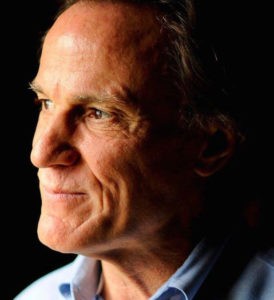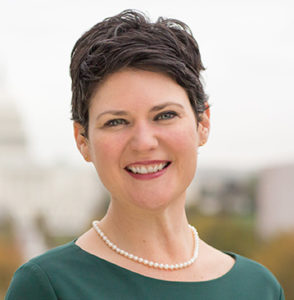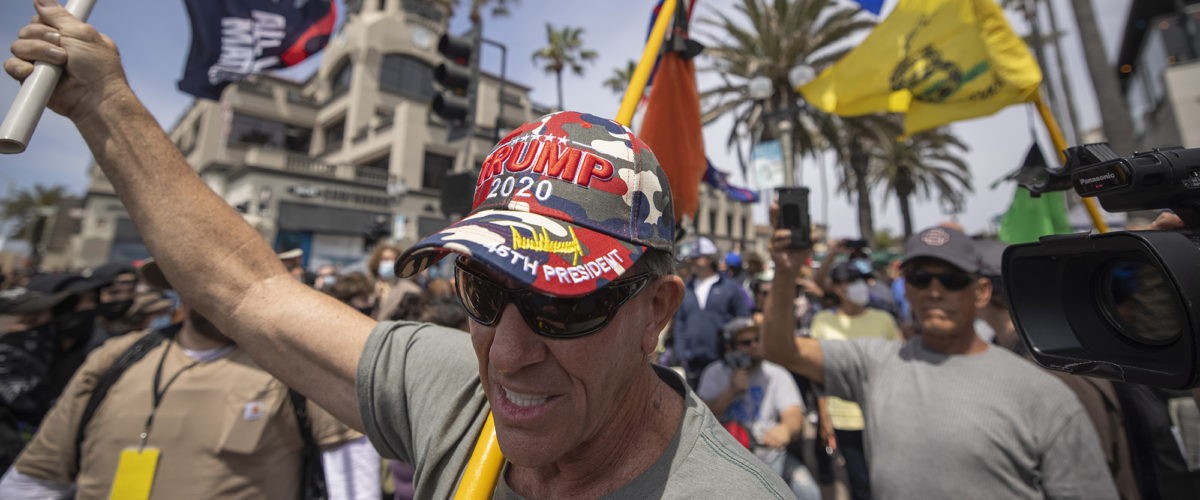Evangelicals fervently support Donald Trump — a thrice-married gambling mogul and television reality star — because they have made his presidency a matter of faith, said Frank Schaeffer, son of the late evangelical theologian Francis Schaeffer.
“In other words, when you challenge Trump now it would be like challenging the virgin birth or the resurrection of Jesus or the reality of the miracles, the walking on water. It’s an element of faith,” Schaeffer said during a recent webinar about Christian nationalism hosted by Christians in Public Service.

Frank Schaeffer
“This is a man they believe was chosen by God, and so reason and facts and poll numbers, none of these things apply —nor does an even, fair election where every Republican official in every state has upheld the veracity of the election except right-wing Republican politicians catering to the evangelical far right,” said Schaeffer, a filmmaker, public speaker and a bestselling author of books including Crazy for God: How I Grew Up as One of the Elect, Helped Found the Religious Right, and Lived to Take All (or Almost All) of It Back.
And his late father, who famously rallied conservative Christians to oppose abortion and engage secular culture, “would literally have thrown up at the idea of Christians storming the Capitol in the name of Jesus to support a con artist like Donald Trump and his claim the election had been stolen when it hadn’t been,” he said. “This is not Christianity. It is not evangelicalism. It is not the light Christianity has often been to the United States.”
Schaeffer was joined in the webinar by Amanda Tyler, executive director of Baptist Joint Committee for Religious Liberty, who focused on defining Christian nationalism and shared examples of the language and imagery its adherents use in pursuing their social and political agendas.
The United States has entered into a previously unimaginable era that parallels other nations where fundamentalist religious movements have risen to political and cultural dominance, including Saudi Arabia, Iran and India, Schaeffer said.
Before the Trump era, no one would have “envisioned there would be a pitched battle between those who support democracy and those who really seem to be working for an agenda of theocracy.”
U.S. Supreme Court rulings granting religious groups exemptions from COVID-19 shut-downs and allowing companies to withhold contraceptive coverage based on faith objections demonstrate the nation’s significant turn toward extremism, he said. “Religious freedom, to the modern American religious Supreme Court, trumps public health.”
The movement also has come to dominate the Republican Party, which “is now part of the evangelical movement, not the other way around.”
The movement also has come to dominate the Republican Party, which “is now part of the evangelical movement, not the other way around. And the agenda of people like Ralph Reed and what used to be the Moral Majority started by Jerry Falwell … actually run the show and made Donald Trump president,” he said. “If you take the white nationalist evangelical voter out of the mix, you don’t even have a Republican Party today.”
This “new thing in American culture” is a white nationalist movement infused with racism, reactionary and anti-democracy thinking, Schaeffer added. “It says, ‘We don’t care about fair and free elections, we’re going to start voter suppression, we’re going to start gerrymandering, we’re going to question election results and even put the entire democracy up for grabs in order to prosecute our agenda.’ And that agenda is right-wing Christian nationalism.”

Amanda Tyler
Tyler began her presentation by urging webinar viewers to think of Christian nationalism not as a religious movement, but as an ideological and cultural one that taps into mythological beliefs about American history and identity and that mixes Christian symbolism with authoritarian, militaristic, nativist and racist impulses.
“White Christian nationalism overlaps with and provides cover for white supremacy and racial subjugation,” Tyler said.
That’s why Tyler said she often uses the terms “Christian nationalism” and “white Christian nationalism” interchangeably.
“A huge part of American history is a history that is steeped in slavery, white supremacy and segregation, and so to mythologize and idealize the founding without recognizing the interplay with slavery and with segregation and other types of discrimination really provides cover for this racial subjugation,” she asserted.
Christian nationalism even operates like racism in American culture, she added. “It’s pervasive in our society and touches every aspect of our culture.”
While the movement often shows up in acts of public violence such as the Jan. 6 storming of the U.S. Capitol and attacks on Jewish and Black Christian groups, it’s also expressed through state laws percolating around the nation, including South Dakota’s requirement that “In God We Trust” be emblazoned on every public classroom wall, Tyler said.
Such measures, together with public Christian monuments, send “an implicit message that you only belong here if you ascribe to this certain religion and that is part of your civic identity.”
These developments inspired BJC to help found Christians Against Christian Nationalism, a group providing resources for churches and individuals to recognize and counter the movement.
That includes knowing how to push back against Christian nationalists’ claims that their critics are “secular leftists” trying to remove God and religion from public life.
The best response, Tyler said, “is that people of all faiths and none have the right and responsibility to engage constructively in the public square.”
Related articles:
Attacks on Critical Race Theory didn’t come out of nowhere, panelists say
The deconstruction of American evangelicalism | Opinion by David Gushee


